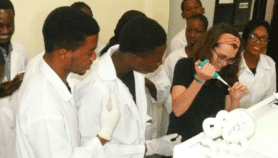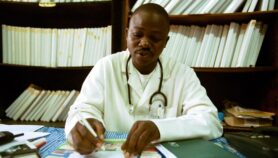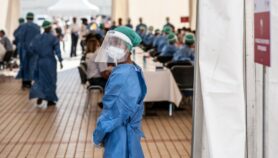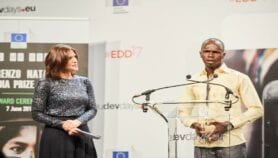By: Maryke Steffens
Send to a friend
The details you provide on this page will not be used to send unsolicited email, and will not be sold to a 3rd party. See privacy policy.
An independent review has called for a rethink of UNESCO’s approach to science and what its core activities should be.
The recommendations, released this month (5 April), were put together by a review committee made up of scientists from UNESCO (The UN Educational, Scientific and Cultural Organization) and experts from a number of countries, with the aim of informing the organisation’s strategy and planning for scientific programmes from 2008.
UNESCO’s general conference called for the review in 2006, following criticism from several member states of the agency’s support for science.
“The agency had too many scattered small projects that had no value. I would even say they were negative, because they raised expectations that could never be realised,” says Alec Boksenberg, Chair of UNESCO’s UK National Commission and a member of the review committee.
The report says UNESCO has failed to foster collaboration between its natural and social sciences sections, as well as having insufficient cooperation between its science and education divisions, to the detriment of promoting scientific research at universities in developing countries.
The review concluded that “policy advice towards capacity building needs strengthening” and that UNESCO should be a facilitator for building scientific networks and capacity, not a funding body for research projects themselves. It also recommended re-evaluating activities — particularly in the area of water — that overlap with the work of other UN agencies.
“The main point we recognised is that it can’t do everything,” says Alec Boksenberg. He pointed to global water issues as an example where UNESCO doesn’t have enough funds to support research.
“In one year there’s about ten million dollars to save the planet. That’s not enough to do anything, so you need to use that money in a way that has enormous leverage.”
Boksenberg said UNESCO should assist countries to make evidence-based policy instead, especially in developing countries. He cites the agency’s success in encouraging the Nigerian government to take the policy of allocating more of its budget to scientific research, education and innovation in industry.
John Daly, a board member of the lobby group Americans for UNESCO, says that the review was timely and necessary.
But he says the review team has been unrealistic in its expectations of coherent action given the way UNESCO is funded.
At present, says Daly, the member states as a whole decide on how UNESCO funding should be designated. But how extra-budgetary funding — which makes up around two-thirds of the agency’s total spending power — is used is up to the donating nation.
This allows countries to pick and choose which individual projects they want to support. “They do so in order to ensure that UNESCO science programs are in accord with their national interests,” Daly told SciDev.Net.
He believes that UNESCO cannot cohere as an organisation when many of its activities are not under the control of the governing body – adding that it is unlikely member states will give up this control.
“Large proportions [of the funding] support the UNESCO Institute for Water Education in Delft, the Netherlands, and the International Centre for Theoretical Physics in Trieste, Italy. So I think member governments would be very uncomfortable in allowing UNESCO to transfer funds from those centres to something like strengthening scientific capacity in Africa.”
In his comments on the report, UNESCO Director-General Koïchiro Matsuura supported the call to strengthen the agency’s work in science policy and capacity building, as well as prioritising science education. He called for the general conference to endorse the need for better coordination of UNESCO’s science programs.
But Matsuura did not concur with the review committee’s conclusion that there is overlap of work and an imbalance of funding with regard to water-related activities.
The review and recommendations are currently being refined by UNESCO’s executive board, and will be submitted to the 192 member nations at the general conference in October this year.
|
Link to full UNESCO Report













